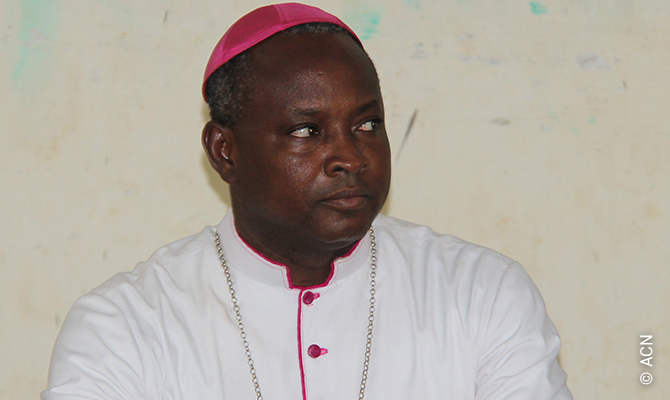For several years now the Sahel region of Burkina Faso has been shaken by a series of terrorist attacks. The two most recent attacks took place three months ago, causing many people to flee their homes and villages. In response to the crisis, the international Catholic pastoral charity and pontifical foundation Aid to the Church in Need (ACN International) has just approved a project aimed at helping some of these internal refugees to reintegrate elsewhere in the life of the Church and of society. Specifically, it is aimed at 18 lay catechists from the parish of Sebba, together with their families. These pastoral coordinators normally work as guides and leaders within their local communities in places where the priests cannot often reach, and consequently they find themselves on the front line, prime targets for the Islamist terrorists. As a result of the attacks, they have been forced to leave Sebba and seek refuge in the town of Dori, the departmental capital and seat of the local diocese.
“This is a real challenge for the cash-strapped diocese of Dori, which has been heavily affected by the terrorist attacks ever since 2015”, explains local Bishop Laurent Dabiré, who is responsible for this administrative region of the Church within the Burkina Sahel. He is also in charge of the measures put in place by the Christian community in Dori to welcome and support these catechists and their families and supply their basic needs after they were forced to flee in haste from the recent terrorist attacks, bringing almost nothing with them. They have now taken shelter in the town of Dori, since for the time being the larger urban centres are regarded as safer.
After providing them with this initial emergency support, it is now necessary to “ensure they have a decent minimum to live on for as long as they remain here in Dori”, the bishop explains. And this will be necessary for some time to come, primarily because these catechists and their families speak only the local Gourmantché language and so this linguistic barrier means they cannot be re-allocated to other dioceses in the country. Furthermore, their presence is necessary for local missionary outreach and to prepare for a future relaunch of evangelization as soon as conditions permit.

ACN has agreed to support these 18 catechists and their families so as to enable them to reintegrate socially in their new environment. The grant of 30,000 Euros will enable them to receive healthcare support, psychological counselling, primary medical aid, food and schooling. It will also enable a fund to be established for the families so that they can eventually support themselves through income generating projects such as livestock rearing and horticulture in the longer term.
The diocese of Dori lies in an overwhelmingly Muslim area with only around 1.8% Christians (both Catholics and Protestants) and has recently experienced two tragic incursions in the eastern part of its territory. The first of these was on 10 February, some 50 km from Dori. “A group of armed men entered the small town of Sebba, the centre of one of my parishes, killing one person and abducting a Protestant pastor and six young pupils. They then executed them in cold blood the next day, releasing two girls only”, Bishop Dabiré explained. The second attack was on 16 February around a hundred kilometres from Dori. The terrorists invaded the village of Pansi, which lies within the parish of Saint Anthony in Sebba, “looting and ransacking and executing 24 people in cold blood”. One of the people they murdered was Philippe Yarga, the catechist and community leader of the village since 2017 and responsible for pastoral coordination within his zone. By mistake in some media reports took to be a Protestant pastor.
Born in 1975, Philippe Yarga left behind seven children, the youngest of whom was born 43 days after his death. He was an outstanding figure, “enthusiastic and full of love for his ministry” as well as being “a good father”. Having been alerted to the fact that the security situation was deteriorating gravely in Pansi, he was about to slip away quietly to the home of one of his friends in a nearby village and find a way to escape from there to another town. However, he was just on the point of leaving his home when he was surprised by a group of unidentified armed men. According to eyewitnesses, the killers attacked the men in the village indiscriminately, without any religious or ethnic distinction. Today the parish of Sebba is closed, the third to suffer such a fate within the diocese.
Given the growing violence in Burkina Faso over the past five years, ACN has also agreed to fund seven other projects, in addition to this reintegration programme for the uprooted families in Dori. These include the formation of 83 future priests in the dioceses of Dori, Kaya, Fada N’Gourma and Tenkodogo, support for 10 religious sisters working in the diocese of Dori and a nationwide pastoral outreach via radio programmes for the uprooted and displaced populations in the regions under threat. Which amounts to a total of €100,000.
